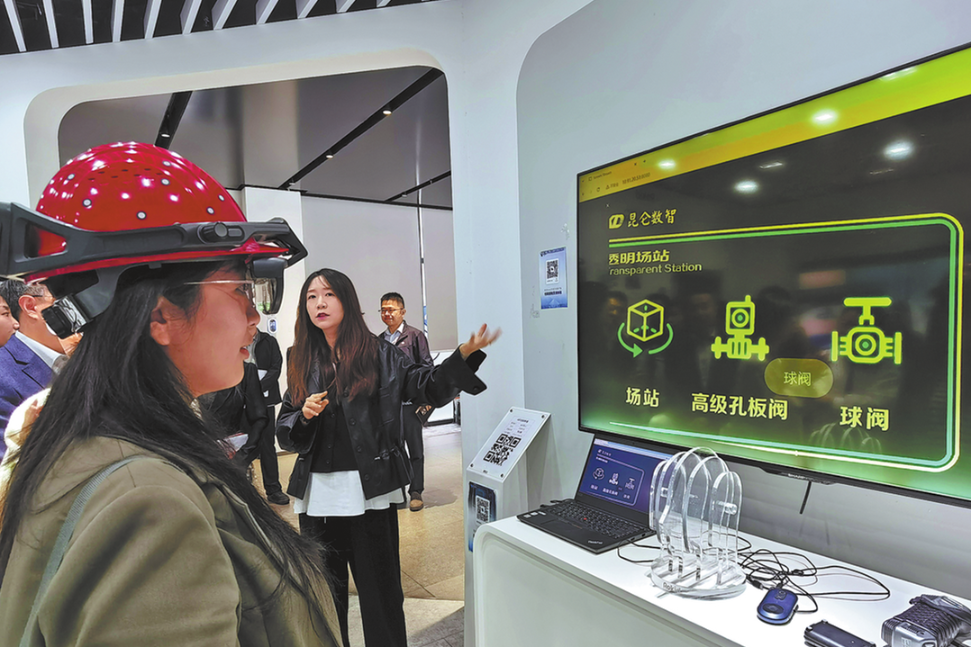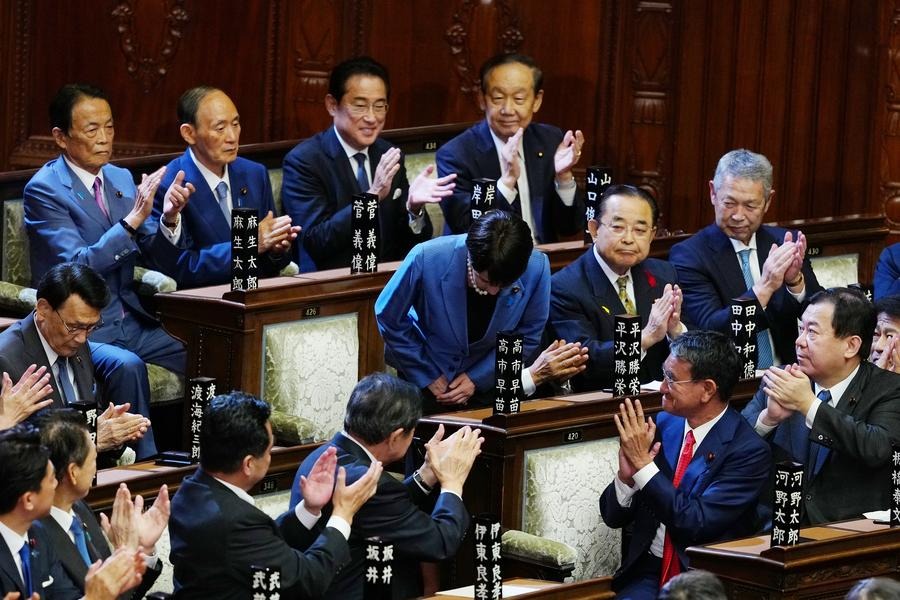AI's use deserves a humanitarian view


This year's Beijing Xiangshan Forum is being held at an important time, and provides a great opportunity for a neutral and independent humanitarian organization such as the International Committee of the Red Cross to share its perspectives on contemporary challenges presented by armed conflicts, including the increasing use of emerging technologies in conflicts.
The ICRC has been pleased to participate in the Beijing Xiangshan Forum over the years, bringing its humanitarian voice and expanding on its long-term dialogue with China. The forum is a unique opportunity to engage with representatives of states and militaries, and other experts on different humanitarian issues, including the impact of weapons and disarmament initiatives on society.
On weapons, the ICRC's focus remains on assessing their impacts on people affected by armed conflicts, and highlighting the importance of international humanitarian law and ethical acceptability, and promoting policies, practices, legal clarifications and, occasionally, adoption of new rules to reduce the adverse consequences for both civilians and combatants.
When I participated in the forum for the first time in 2019, our expert panel discussed the developments in the fields of science and technology, and global security. The ICRC continues to make efforts to address the serious harm caused by conventional weapons to civilians in armed conflicts including by advocating the Arms Trade Treaty (which China joined in 2020) and urging parties to armed conflicts to avoid the use of heavy explosive weapons in populated areas.
The ICRC also seeks to examine and address the implications of weapons and methods of warfare based on emerging technologies, such as cyber and other digital operations, military activities in outer space, and military applications of robotics and artificial intelligence.
Arguably some of the most significant developments in science and technology since my last visit to Beijing have been in machine learning. For instance, AI tools have rapidly gained public attention both for their capabilities to generate text and images, or write code, and for the risks that may accompany certain uses.
So I am excited to take part in this year's forum and to discuss strengthened global security governance of AI. The ICRC has drawn attention to several applications of AI in armed conflict with significant implications from a humanitarian perspective. For example, certain military applications of AI risk increasing the dangers posed by autonomous weapons, exacerbating harm to civilians from cyber operations and information warfare, and negatively impacting the crucial role of human judgement in armed conflict.
Among the most worrying aspects has been the suggestion that AI could be used to direct decision-making on the use of nuclear weapons, potentially exacerbating the risks of use of nuclear weapons with the catastrophic consequences that would result in.
In recent years, China has published position papers on "Strengthening Ethical Governance of Artificial Intelligence" and "Regulating Military Applications of Artificial Intelligence", and expressed the concern that "sound governance of artificial intelligence is lacking" in its recent "A Global Community of Shared Future: China's Proposals and Actions".
It is encouraging to see China's emphasis on a "people-centred approach" to AI and the principle of "AI for good". This perhaps has overlaps with the ICRC's "human centered approach" to AI in armed conflicts, which focuses on retaining human control and judgement to uphold the legal obligations and ethical responsibilities of people involved in armed conflict.
The ICRC's immediate concerns are the high-risk applications of AI in armed conflicts. A significant priority, therefore, is to address the dangers posed by increasing military interest in autonomous weapons — weapons that select and apply force to targets without human intervention. Since this raises serious humanitarian, legal and ethical concerns, exacerbated by the integration of AI, the ICRC has been urging states to adopt new global rules with specific prohibitions and restrictions.
On Oct 5, United Nations Secretary General Antonio Guterres and ICRC President Ms. Mirjana Spoljaric issued an urgent joint appeal to states to conclude these negotiations by 2026. The ICRC has emphasized the need to prohibit both autonomous weapons that directly target people and unpredictable autonomous weapons, such as those controlled by machine learning, while setting clear and specific restrictions on all others.
With rapid developments in weapon acquisition, and their use in conflicts today, the ICRC welcomes China's initiatives, and encourages it to intensify its efforts to build regional and international support and cooperation for the establishment of clear legal redlines on autonomous weapons that will protect people now, and for generations to come.
Conferences such as the Beijing Xiangshan Forum offer a unique opportunity to pursue dialogue in support of multilateral initiatives that will effectively address such contemporary challenges. The ICRC greatly values its continued dialogue with China.
The author is a senior scientific and policy adviser, International Committee of the Red Cross, Geneva. The views don't necessarily reflect those of China Daily.
If you have a specific expertise, or would like to share your thought about our stories, then send us your writings at opinion@chinadaily.com.cn or comment@chinadaily.com.cn.

































